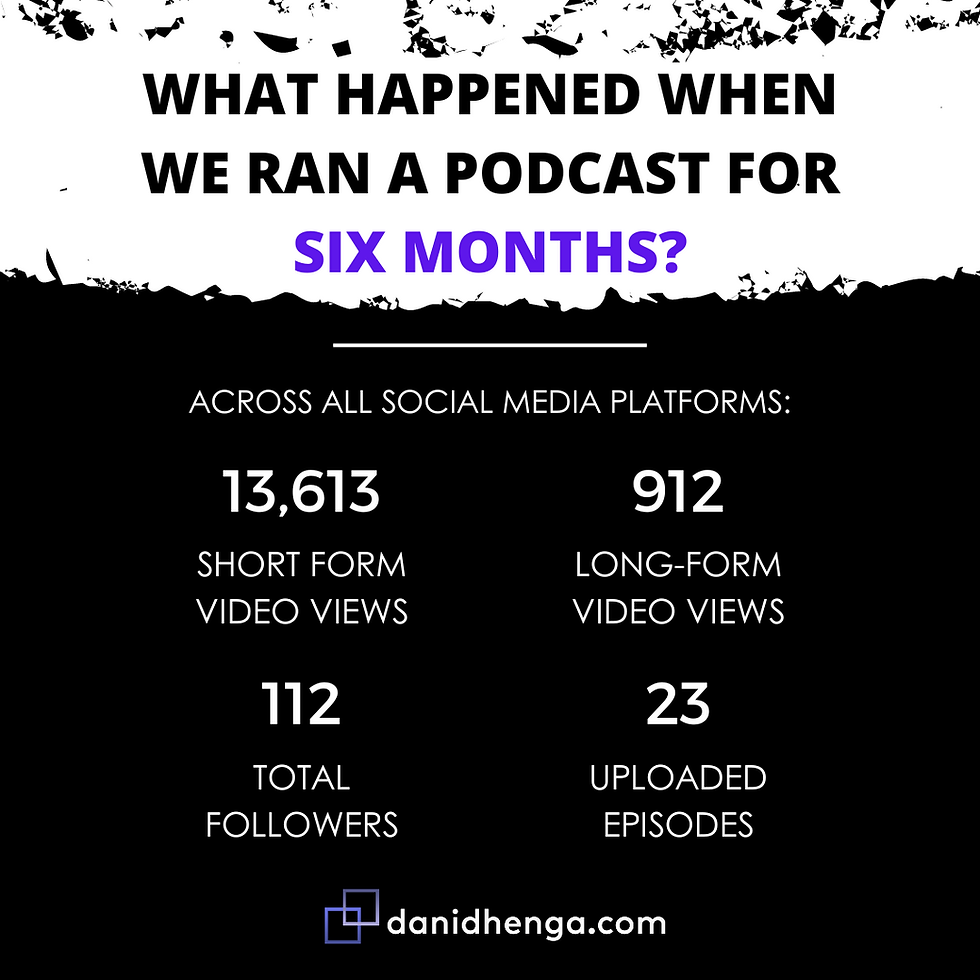How to Build an Effective Startup Using Brazilian Jiu Jitsu | Dan Idhenga
- Dan Pandeni Idhenga
- Nov 29, 2022
- 3 min read
Updated: Jul 22, 2024
My Brazilian jiu jitsu journey started during early 2020, when I signed up at Renzo Gracie Academy in New York. It was a phenomenal space to learn and my fitness had never been at such a high level (I felt like a real athlete!).
I put everything on pause during the COVID-19 lockdowns and I re-started in October 2021 in London. I’ve thoroughly enjoyed getting back into it over the past year.
Brazilian jiu jitsu is a martial art that tests your determination as well as your physical and mental strength. Of course, after founding a startup and spending extensive time building ConfirmD (a digital health wallet startup), I started noticing parallels between Founders and jiu jitsu enthusiasts early in my training.

Here are three similarities I’ve noticed between Brazilian Jiu jitsu and building a startup:
1. Cooperation and Teamwork
Having a strong team means that you can learn from the best. In many cases the people you train with influence your martial arts development more than the instructor. My gym mixes white belts with the more experienced black belts and through them I have learned several ways to defend my neck from dangerous chokes. Their dedication and experience is invaluable and motivates me to keep coming back. Another thing to note is the phenomenal community that tends to form around jiu jitsu circles. It’s usually a diverse group of characters who are kind, dedicated to their craft, but also dangerous.
In a similar way, startup teams can help to push through the most challenging roadblocks. Peter Drucker once said that “Culture eats strategy for breakfast”. In other words, by employing the right people, the right products and services will automatically actualise from your team. This is why it is important to hire effectively and fire fast. Employees that do not share a strong interest in the Startup mission create a deadweight on the company, as highlighted in recent “quiet quitting” news.
2. Stay Humble (Tap) & Pivot
In jujitsu tapping is a sign of recognising your loss. It’s not something to be ashamed of. In fact, it’s one of the best ways to learn quickly. If your leg triangle attack strategy fails, and you tap multiple times, it’s probably a sign that your strategy needs to pivot, at least when dealing with your current opponent. Perhaps they are too tall for you to be effective. Instead you might try an ankle lock or another move which is more appropriate.
Having the ability to pivot is one of the characteristics that make Startups interesting. When something works founders should be able to go all in on their discovery and at the same time, if a product or strategy fails, you should not hesitate to immediately switch course and try something else. While working at a Startup I experienced a total pivot when we were unable to publish our application as originally planned. Instead, we partnered with an authority in our space, which opened new resource and revenue sharing opportunities.
3. Marketing and Market Timing
When trying to take down your opponent, you need to strike at just the right time. If you are too late, your rival will likely defend and might even counterattack. The key to a successful takedown is correct positioning and efficient timing. If you are careful at positioning yourself and move quickly, then you will likely taste success.
In the startup space, timing can be just as challenging. Innovative companies design products and services, which are naturally unknown to most people. Predictably, some products are introduced too early for consumer use.
For example, in 1995 Nintendo developed its first Virtual Reality (VR) headset, the Virtual Boy. While the product was an innovative concept, the public did not like it and the idea failed to gain traction.
However, in 2014, Meta (Facebook) acquired Oculus, the largest VR Startup in the market, for US$ 2 Billion with a vision of improving immersion in gaming, social-media, and other entertainment functionality.
While Nintendo’s VR concept was eventually validated, it took more than 20 years for consumers to gain acceptance of the technology, and today only a small percentage of people own a VR headset.
R&D is expensive and Nintendo lost the VR race. It was far too early in its timing and was therefore was ineffective at selling its product. That’s why doing your market research and finding a product-market fit early will save you from many headaches down the road.
In closing...
Understanding the mindset of a jiu jitsu athlete is highly relevant for any startup founder. It teaches you to be humble, nimble and how to cooperate with much more experienced peers. I would highly recommend the sport to anyone, many academies will allow you to have a free lesson.






Comments